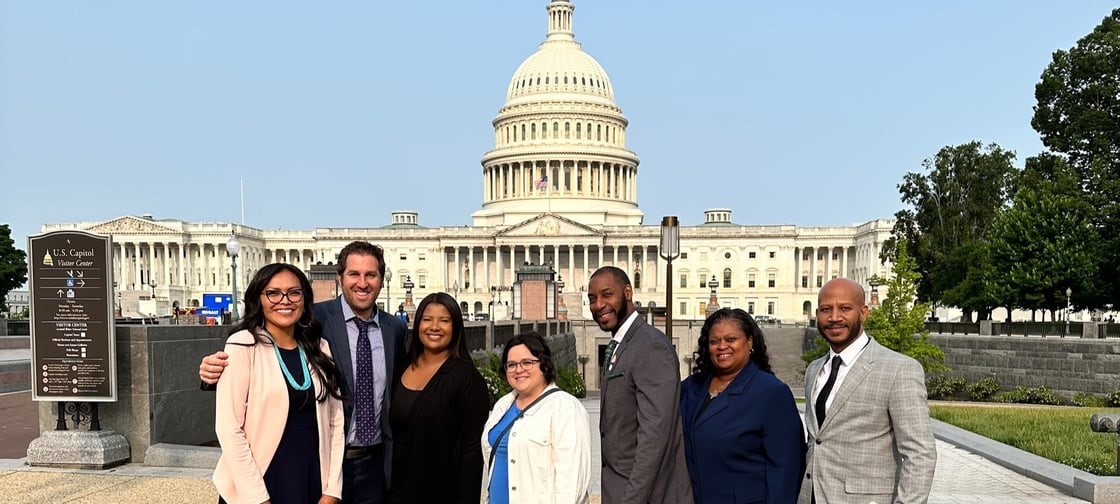Earlier this week, we released the tenth edition of our annual state charter school laws rankings report. Since we released the first edition of it in January 2010, three states enacted brand-new legislation relatively well aligned with the model law (Alabama in 2015, Maine in 2011, and Washington in 2012 and 2016). Between 2010 and 2018, 37 states made policy improvements that resulted in increases in their scores in the report. States made the most progress in lifting caps, strengthening charter school and authorizer accountability, and making significant improvements to their facilities policies for charters.
Some key takeaways from this year’s rankings include:
For the fourth year in a row, Indiana has the nation’s strongest charter school law in the country, ranking No. 1 (out of 44). Indiana’s law does not cap charter school growth, includes multiple authorizers, and provides a fair amount of autonomy and accountability. Indiana has also made notable strides in recent years to provide more equitable funding to charter schools, although some work remains to be done.
Georgia made the biggest jump in this year’s rankings, moving up 11 spots from No. 27 to No. 16. Georgia made this leap because it enacted legislation that improved the state’s policies for special education, funding, and full-time virtual charter schools.
New York experienced the largest drop in this year’s rankings, falling from No. 14 to No. 17. While New York didn’t enact any new negative legislation, its existing caps on charter schools now leave limited room for growth in New York City, causing this drop.
The Top 10 includes a mixture of states with more mature movements (Indiana at No. 1, Colorado at No. 2, Minnesota at No. 4, Florida at No. 7, D.C. at No. 9, and Nevada at No. 10) and states with newer movements (Washington at No. 3, Alabama at No. 5, Mississippi at No. 6, and Maine at No. 8). The fact that these states are in the Top 10 speaks to the fact that many existing states continue to strengthen their laws based on what’s working (and what’s not working) and that new states rely heavily on those lessons learned so they don’t repeat the mistakes of the states that came before them.
States that are enacting laws for the first time and states that are overhauling their laws are bypassing states that were previously more highly ranked, such as Arizona, Louisiana, and New York. That doesn’t mean that the laws have gotten weaker in the states being bypassed. They remain strong. What it does mean, though, is that more and more states have better and better laws across the country, a good place to be if you believe that all states should have high-quality charter school laws.
Maryland has the nation’s weakest charter school law, ranking No. 44 (out of 44). While Maryland’s law does not cap public charter school growth, it allows only district authorizers and provides little autonomy, insufficient accountability, and inequitable funding to charter schools. Rounding out the bottom five states are Iowa (No. 40), Wyoming (No. 41), Alaska (No. 42), and Kansas (No. 43).
One of the issues that has periodically come up over the past decade is the inclusion of states that have recently enacted or substantially overhauled their charter school laws in the report. We had the honor of working side by side with local advocates and lawmakers in many of these states to craft and advocate for these laws. In each of these states, we used our model charter school law as the foundation for these efforts but had to modify it to align with local political and policy contexts. Since our annual rankings report analyzes each state’s law against our model law, it isn’t much of a surprise to see these states rank highly in this effort.
From our perspective, the point of our annual state charter school laws rankings report is to figure out which states are creating the conditions for high-quality charter schools by providing, among other things, flexibility, funding equity, non-district authorizers, facilities support, and accountability. We think it is important to include all of the states in this analysis, including the new states. We want charter school supporters to have a comprehensive view on which states are creating those conditions.
It is important to note that we have also completed two versions of another periodic report on the health of the charter school movement in each state (in 2014 and 2016) that analyzes how those policies are playing out in practice by analyzing indicators associated with growth, innovation, and quality. While we include every state with a charter school law in the law rankings report, we only include states that meet certain conditions in the health of the movement report, including that the state’s charter schools serve at least two percent of the state’s students.
Lastly, it is important to realize that similar policies will play out differently from state to state because of a whole host of local political and policy factors. As advocates, the best that we can do is push for laws that create the conditions for high-quality charter schools by providing, among other things, flexibility, funding equity, non-district authorizers, facilities support, and accountability. And upon their enactment, we need to push equally hard for the implementation conditions that support high-quality charter schools.
Todd Ziebarth is the senior vice president for state advocacy and support for the National Alliance for Public Charter Schools.
Read the full report or see how your state measures up!







